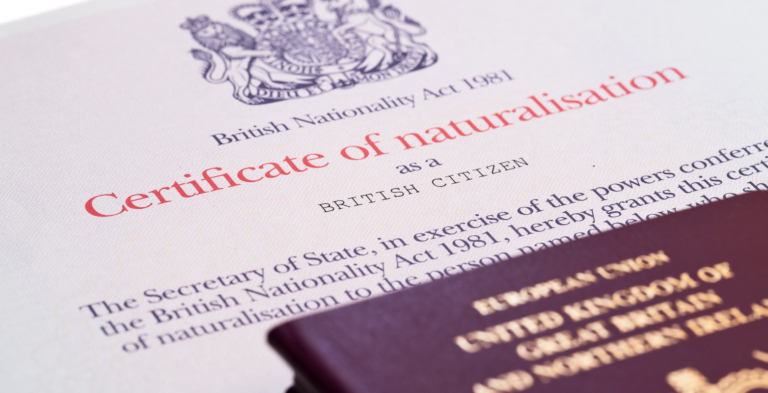Sole Representative Visa

Not so long ago, a sole rep visa was a convenient immigration opportunity for foreign individuals with business acumen to enter the United Kingdom and establish a startup or extend their commercial presence to this European country. However, starting from April 2022, the UK Home Office decided to cease this immigration scheme to the majority of new applicants.
In a new development, the UK has revised its visa regulations, limiting the eligibility for business representative visas exclusively to employees who work for news agencies, overseas newspapers, and broadcasting organisations on long-term assignments. Any foreign national, seeking to establish a new company or a subsidiary in the Kingdom, will now need to apply for the innovative UK Expansion Worker visa, also known as the Global Business Mobility visa.
If you are keen on launching a new company in the United Kingdom or if you currently own a business in Great Britain, you may also consider exploring the visa route of a Skilled Worker through self-sponsorship. This means your own UK company will sponsor your immigration. Notably, dependent partners and children of exclusive reps still can avail themselves of the immigration scheme of Sole Representative of an Overseas Business Visa.
Sterling Law provides a full representative of overseas business visa guidance, helping potential candidates easily navigate the complex world of international visas in the UK.
The Essence of an Overseas Business Visa
The Sole Representative of an Overseas Business Visa enables a high-ranking employee of a foreign company to enter the United Kingdom and establish and manage the operations of a UK branch or a subsidiary that is fully owned by the parent company from abroad.
Once the sole rep visa is secured, the holder can stay in the United Kingdom for up to 3 years with the possibility of extending their visa for another 2-year period. After living in the UK for 5 years on a Business Representative Visa, a person can qualify for Indefinite Leave to Remain and potentially apply to become a British citizen.
If you hold this specific visa, there are both advantages and limitations that you will encounter.
On the positive side, you can work full time for your employer and arrange the immigration of your family members as your dependants. Additionally, you can apply to extend your visa, giving you the flexibility to continue your professional journey in the UK. After five years of being here, you also have the option to settle permanently in the country, granting you stability and a sense of belonging. Furthermore, the possibility to switch to this visa from inside the UK is a convenient option for those seeking new opportunities.
However, if you have this specific visa, you cannot work for yourself or get employment from any other company. You also cannot access public funds, so you must rely on your own income and resources.
Eligibility Criteria for a UK Sole Representative of an Overseas Business Visa
If you want to apply for the UK Sole Representative of an Overseas Business Visa, you must meet these requirements:
- Financial Independence. You must possess sufficient funds to sustain yourself in the UK without relying on public assistance.
- English Proficiency. You must observe the English language requirement specified by the immigration authorities.
- Employment as a Representative. If you work for a foreign media company and have been given a long-term assignment in the UK, you can apply for this visa.
For individuals seeking the UK sole representative visa, there are multiple avenues to fulfill the English language criterion. These options encompass successfully conquering an authorised English language examination at CEFR level A1 in oral communication and auditory comprehension or possessing an educational achievement delivered in English, which is accredited by Ecctis as comparable to a UK bachelor’s, master’s, or PhD degree.
However, nationals of certain English-speaking countries, such as Australia, Canada, the USA, and some others, do not have to demonstrate their English language proficiency. Additionally, certain circumstances may exempt individuals from proving their English knowledge for the UK exclusive rep visa. These circumstances include having serious health issues or being over the age of 65 and unable to meet the English language requirements.
How Long Can You Legally Stay On a Sole Representative Visa?
Typically, you can stay in the Kingdom for an initial period of up to 3 years with a sole representative visa. However, it is possible to extend this visa for an additional 2 years, allowing for a maximum stay of 5 years. After this period, you may be able to apply for settlement or Indefinite Leave to Remain (ILR) in Britain.
To prolong your time in the UK with a sole rep visa, it is necessary to submit your application before your present visa reaches its expiration. Remember, your partner or child’s visa won’t automatically be extended alongside yours. Their visa will remain valid until its original end date if they choose not to extend it. They have the choice to apply simultaneously with you or before their current visa expires at any time.
Conditions to Stay with a Sole Representative Visa
As the exclusive rep of a foreign business, you can only work for the company that sponsored you in the UK. You cannot have any other business ventures or engage in part-time or consulting work alongside your employment for the company. These are the primary stay conditions for this visa type.
Documentation to Support Your Sole Representative Visa Application
A set of necessary documents required for a sole representative visa includes:
- A valid passport or other travel identification.
- Documentation showing your financial capability to support yourself and any dependents throughout your journey. This can be demonstrated through bank statements or payslips from the preceding six months.
- Verification of complying with the English language requirement.
- Thorough information outlining the parent company’s operations, including assets and account details.
- Evidence that you will be acting as a representative of the parent company in a full-time, long-term capacity in the United Kingdom.
If you are applying outside the UK, there are additional documents to supply:
- Details of your accommodation during your stay in the UK.
- Tuberculosis test results, if applicable for your country of origin.
- You must have a blank page in your passport for the visa.
Note that any documents not in English or Welsh must be certified translated. Depending on your specific circumstances, the UK immigration authorities can ask you to provide additional documents.
The Fee to Pay for a Sole Representative of a UK Sole Representative Visa
If you are applying for the Sole Representative Visa from outside the UK, it will currently cost you £625. However, if you are already in the UK and applying, the cost of this visa category will be £719. Additionally, you will have to provide your biometric details, which includes a photo of your face and fingerprints, but this is free of charge.
Another important requirement is to pay the healthcare surcharge as part of your application. Its cost will depend on whether you are applying alone, with dependants, or if you are entering the UK to join someone. The UK Home Office provides a calculator to find out how much you need to pay.
Sole Representative Visa Processing Time
When applying from outside the UK, you can start your application 3 months before your planned travel date. For instance, if you plan to travel on 15 May, you can apply from 16 February. The decision on your visa application will be given within 3 weeks when applying from outside the UK.
Should you choose to submit your application within the United Kingdom, rest assured that a decision will be delivered to you within a span of 8 weeks. However, if certain circumstances arise, such as the need to verify your supporting documents, an interview being required, or your personal situation being taken into consideration, UKVI will promptly inform you if your application may take longer.
Once your application has been successfully submitted, you are permitted to remain in the UK until a decision has been reached. This flexibility ensures that you are legally allowed to stay within the country as long as your application was filed prior to the expiration of your current visa.
Can a Sole Representative Bring Dependents to the UK?
With this visa, your family members can come with you as dependants. If you have a spouse, partner, or children younger than 18, they are considered your dependents. When you apply for a visa and it gets approved, their visa will usually expire on the same date as yours. However, if your visas have different validity dates, your child’s visa will end earlier.
But if you are a sole representative and your partner or child owns or controls most of the foreign business you will be representing, they can’t come to the UK as your dependent.
If your family members are applying for visas from outside the UK, they need to apply online and go to a visa application centre to provide their fingerprints and photographs.
If you’re in the UK and want to extend or switch your visa, your partner or child’s visa will still be valid until its original expiration date. They can apply to extend or change their visa at the same time as you or before their current visa expires, even if they turned 18 while you were in the UK. However, if they have a visitor visa, they can’t apply to be your dependent while they’re in the UK.
If your partner or child is currently residing in the UK on a Student visa, the opportunity to switch their visa arises only after they have successfully completed their sponsored course or dedicated a minimum of 24 months to pursuing a PhD.
If your children are born while you are in the UK, you must apply online to add them to your visa as dependants if you want to travel in and out of the UK with them. You will need to submit a full UK birth certificate for each child that shows the names of both parents.
If you have dependents like a partner or child, they can work, study, travel, and come back to the UK. After living in the country for 5 years and meeting the eligibility criteria, they can apply for settlement in the UK. However, they usually can’t get most benefits or the State Pension. Once their application is approved, they will get a complete list of what they can and can’t do.
How Can We Help?
When applying for a Sole Representative of an Overseas Business visa, it’s vital to provide the necessary documents according to the existing Immigration Rules in the UK. To ensure your application is presented correctly and meets all requirements, seeking advice from an immigration lawyer can be beneficial.
At Sterling Law, our immigration lawyers have helped thousands of individuals and companies to obtain Sole Representative Visas. Although the UK’s immigration policies are constantly evolving, our solicitors stay up-to-date with the situation and are dedicated to providing our clients with the most suitable immigration routes perfectly tailored to their needs.
What sets Sterling Law apart is our commitment to understanding and meeting our clients’ pains. We are a highly approachable and proactive team, committed to offering clear and reliable immigration advice to everyone who entrusts us with their UK immigration project. Our services are delivered with professionalism and a friendly touch, as we take immense pride in providing the utmost legal assistance to our clients.











